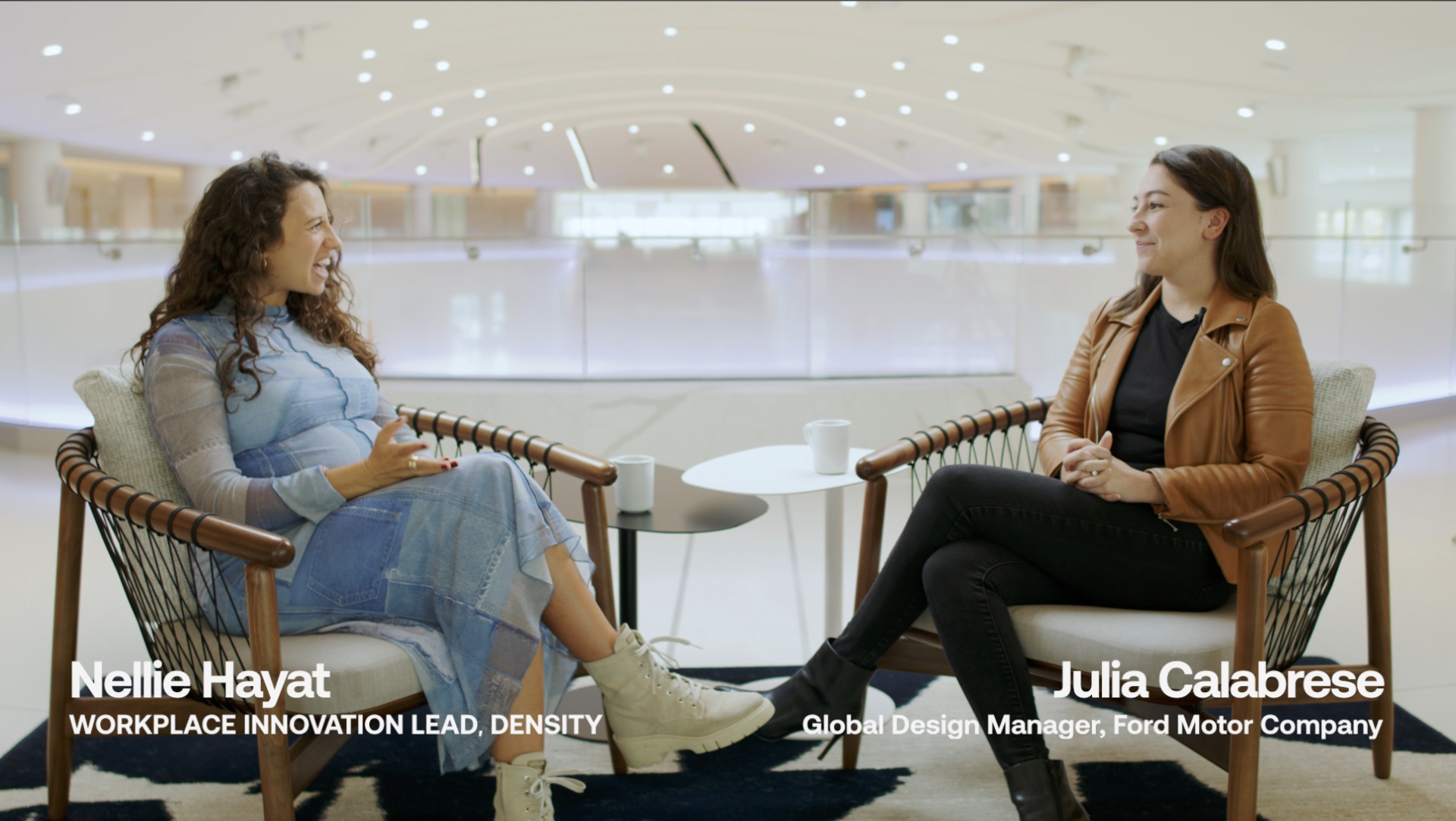The pandemic served as a catalyst for many companies to evolve their workplace strategies. For Ford, truly evolving its approach to work meant bringing in external experts.
The workplace team brought in a think tank composed of diverse experts to understand employees’ psychological states and new needs.
“We knew this was such a big problem in a world that was rapidly changing and that we didn’t have the expertise to solve this question internally,” says Julia Calabrese, Global Design & Brand Manager at Ford Motor Companies. “Out of that, we got nine guiding principles, which really shaped our future of work, our workplace policies, and really how we do business today.”
The Ford team brought in a think tank composed of diverse experts to understand employees’ psychological states and new needs.
In addition to recognizing when additional expertise is needed, Calabrese and her team also understand that design is iterative. It’s unlikely you’ll get it right the first time.
She offers three keys to developing a successful, human-first workplace, all rooted in collecting feedback:
- Get internal feedback from diverse perspectives before launching changes
- Pilot the change in one location and gather utilization data with sensors
- Make adjustments based on that data, coupled with employee feedback, before rolling out the updates globally.
